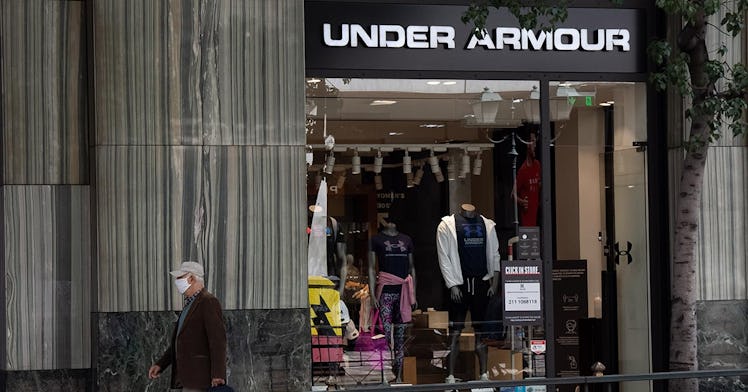Under Armour Is Boosting Pay By 50% to Get Workers. That’s Great News
Under Armour is solving a so-called labor shortage by raising wages, which is good for everyone.

Under Armour has joined a number of other businesses, from McDonald’s to Starbucks to Chipotle, in raising its wages for its workers and prospective employees over the past several weeks in order to attract them.
The wage raises, which are significant and affect a large part of the existing workforce at the company, are part of an overall trend where employers have begun offering higher wages and even wages that bring a path to the middle class in order to attract employees in a post-COVID-19 economy.
Under Armour announced on Wednesday that hourly retail workers will earn $15/hour in the United States and Canada and that the raises will take place on June 6. Per CNBC, the raises will amount to nearly a 50% wage raise for a ton of the employees, and will overall affect 90% of the company’s workforce.
But the move isn’t just because the company appreciates the people who are working there now. It’s also an attempt to attract more workers as the economy reopens and potential employees hold out for decent-paying jobs. Under Armour is trying to hire 3,000 more people in the coming months and every single job will be at the $15/hour wage.
Of course Under Armour is joining Chipotle (which will raise the average wage to $15/hour and will offer a path to six-figure salaries for some workers), McDonald’s (which is raising its average wage from $11 to $17/hour) and more. It’s great news for workers — and a part of an overall trend where employers are beginning to realize just how much they need to value the labor they require in order to operate their businesses.
One ice cream shop in Pittsburgh, for example, Klavon’s Ice Cream, was struggling to hire employees as the economy began to reopen in the state. So they announced they were raising their wages to $15/hour and got over 1,000 applications for just a handful of positions — proving that there are plenty of workers in many markets, but that they are waiting for jobs that will pay enough to help them survive.
The wage raises, which are substantial in many cases, have followed a national trend where private employers are offering far more than the federal government requires or mandates in order to attract a workforce.
And ultimately, though the government should step in and simply mandate a $15/hour minimum wage, the current political reality likely means that this won’t happen any time soon. So some businesses are stepping in, solving a so-called labor crisis by valuing said labor more than they had to in the past. And it’s working.
And it also helps American families. One paper, from researchers at the University of California Berkeley, found that wage increases at major companies (like Target, Starbucks, and more, which have been raising wages as well) can ripple out and lead to other major companies raising their wages, as well.
So the more companies that try to attract workers with more incentives, the more companies that try to attract workers with more incentives. And higher wages are associated with a higher quality of life, better outcomes in health and education, and more, making these wages a pro-family policy that shouldn’t just be led by private businesses.